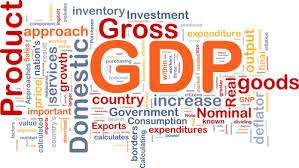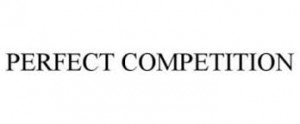In a futures contract a trader makes a promise or accepts/ agrees to deliver a commodity or financial asset in the future on a date under certain conditions for a particular price. A futures contract is an agreement for future exchange to purchase/ sell commodities/financial instruments between two parties. Long and short are two important terminologies. The sender or the one who delivers the commodity is in a short position where as the trader on the receiving end is in a long position. Whilst studying “Futures Contract” one must know the following key words and their meanings spot price (today’s price), futures price and volume (number of contracts traded). Although the date and price of a futures contract is set it is unpredictable when compared to forward contract. A futures contract gives the holder the obligation to buy and sell. Future contracts are open to general public as they are traded on future exchanges.
There are various kinds of futures contracts according to commodities, securities, intangible (rates and indexes) and currencies. The different kinds are as follows:
v Energies- natural gas, oil, ethanol etc
v Indices- multiple stock indices of different countries
v Metals- gold, silver, copper etc
v Exotics- frost, snowfall, hurricane etc
v Ag commodities- wheat, corn, rice, coffee, milk, sugar etc
v Financials- interest rates mostly dollar and euro
v Currencies- euro, pound, yen, rupees etc
What is a HEDGER?
Hedgers are commercial producers/consumers of assets who participate in the futures market and take steps to reduce the risk of an investment by making an offsetting investment so as to reduce the risks of losses from fluctuating prices Hedger takes an offset position in order to balance gains and losses to the assets thus eliminating the volatility associated with the price of the asset hedge can be constructed from many types of financial instruments, including stocks, exchange-traded funds, insurance, contracts, swaps, options, many types of over-the-counter and derivative products, and contracts hedger provides a counterbalance which reduces/cancels the risk in another investment. Hedgers are interested in protecting themselves against price changes which will reduce their profit Hedging is buying or selling futures contracts as a temporary substitute for buying or selling the commodity at a later date in the cash market. Hedgers do face risks but they reduce it by taking an opposite position in the market to what they are trying to hedge. Hedgers would ideally want to cause one effect to cancel out other hedgers. Hedgers try to reduce the risks associated with uncertainty. Hedging is using futures as a means of limiting the risks that arise from large fluctuating prices. Hedger is a form of insurance against adverse price movements. Hedging is about preserving and promoting wealth by reducing exposure to financial and commodity price movements, catastrophes, variable operating costs and income. The hedger plans to buy/sell a commodity and buys/sell a futures contract to lock in a price and protect against rising/falling prices. Hedger is a producer/user of commodity or a financial product underlying a particular contract. A hedger’s goal is to protect his profit and limit his expense.
What is a SPECULATOR?
Speculators are anticipators of price change in the future markets who are actively involved in and selling contracts readily sacrificing the safety of principal and taking large risks with the intention of earning large profits. Speculators analyze the market and forecast futures price fluctuations by studying the external events that affect price movements. Speculator takes advantage by buying futures contracts. Assuming the price variability risk they provide the depth and volume of trading which allows hedgers to enter/quit the market. Speculators give liquidity to a market and opportunities for continuous trading. Speculator influences a commodity’s price in futures contract. Speculators bet on the price change potential to gain higher profits. Speculators perform a very important risk bearing role of benefiting the society. Speculators can increase production through their willingness to take on risk. Speculation is the practice of engaging in risky financial transactions in an attempt to profit from short or medium term fluctuations in the market value of a tradable rather than attempting to profit from the underlying financial attributes embodied in the instrument such as capital gains, interest, or dividends. Speculators need flexibility of high volume and open positions. Speculators deal with changes in the expected price levels over time, and they don’t own/use the cash commodity. Speculators don’t prefer to make/accept deliveries of the actual commodities. Speculators take large risks with respect to anticipating future price movements. Speculators often use technical analysis and other tools to make investment decisions . Speculators are controversial because some believe that they contribute to the creation of bubbles.
What is an Arbitrage?
Arbitrage is a trader who buys the same commodities/securities from one market and sells them to another one thus attempting to profit from price inefficiencies in the market and capturing risk-free profits. It is mathematically defined as:
0 \, ” style=”width:298.5pt; height:23.25pt;visibility:visible;mso-wrap-style:square”>
Arbitrage considered as a risk less profit for the investor/trader Arbitrage takes advantage of a price difference between different markets but also keeps the prices in various markets stable Arbitrageurs provide liquidity in futures market by ensuring the convergence of cash and futures prices towards the expiry date of the contract. Although arbitrage is risk-free; there are always risks in arbitrage, some minor, some major. The transactions must occur simultaneously to avoid exposure to market risk; change of prices on one market before both transactions are complete. The statistical arbitrage that an arbitrageur might be involved in includes merger, liquidation and/or pairs trading. Arbitrageurs need to be quick in order to take up the position before competing arbitrageurs. Arbitrageurs need to control enough capital to make the position meaningful so that the market notices and corrects the problem. Arbitrageurs make the market more efficient by taking up many arbitrage positions. Arbitrage involves no negative cash. It is a risk-free profit after transaction costs it is present when there is the opportunity to instantaneously buy low and sell high.
Click here for government certification in Accounting, Banking & Finance





6 Comments. Leave new
Excellent work!
great job !
Great work
Good Job..
Got something new to read 😀
Good work 😀 buddy such a long article and it was totaly unique filled with all the required info 😀 and the contents well refined 😀
I would suggest you to go for bullets rather than “v” that you have actually used 🙂 good work 😀
well had written about it few articles back but was really brief. you brought the whole thing.